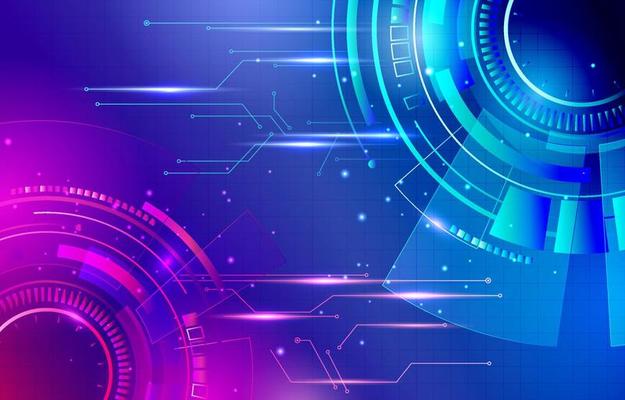In 2025, the software industry is undergoing a dramatic transformation. One of the most significant changes is the widespread adoption of AI-powered chatbots. No longer just customer service tools, AI chatbots have evolved into smart assistants that are reshaping how businesses operate, how software is built, and how users interact with digital platforms.
This evolution is being driven by advancements in machine learning, natural language processing (NLP), and integration capabilities. AI chatbots are now at the core of automation, streamlining business processes, reducing human effort, and improving software performance.
What Are AI Chatbots?
AI chatbots are computer programs that simulate human-like conversations using artificial intelligence. Unlike rule-based bots, which follow a script, AI chatbots understand context, learn from data, and provide personalised responses. These bots use natural language understanding (NLU) and machine learning algorithms to evolve over time, making them more effective and interactive.
In 2025, AI chatbots are being used for a variety of purposes beyond traditional customer support. They are helping with internal business automation, product recommendations, task management, and even software troubleshooting.
AI Chatbots as Virtual Developers
One of the most notable shifts in the software industry is the emergence of chatbots as virtual developers. In agile environments, AI chatbots are being used to:
-
Automate repetitive coding tasks
-
Generate code snippets based on prompts
-
Run unit tests and check code quality
-
Provide real-time feedback on syntax and logic
This transformation is significantly reducing development time. By assisting human developers, these bots enable faster release cycles and improve software reliability.
Enhancing Project Management Workflows
AI chatbots are playing a critical role in project management within software companies. Integrated with platforms like Jira, Asana, and Slack, chatbots now serve as intelligent assistants that:
-
Track progress in real-time
-
Alert teams about delays or blockers
-
Provide summaries of meetings or action points
-
Schedule tasks and assign them to team members
This not only improves team communication but also ensures that projects stay on schedule.
Personalised User Support and Experience
Traditionally, user support in software companies relied heavily on human agents. However, in 2025, AI chatbots offer 24/7 intelligent support that is tailored to individual user needs. They are capable of:
-
Understanding user intent and history
-
Recommending solutions based on past issues
-
Escalating complex queries to human support agents when needed
This level of personalisation enhances customer satisfaction and builds long-term loyalty.
As companies aim to create more adaptive digital experiences, many are partnering with experts in the field. For instance, an AI software development company in NYC might offer advanced solutions that blend chatbot technology with business intelligence tools, creating more dynamic platforms.
Streamlining Internal Operations
AI chatbots are being deployed internally to handle routine tasks like:
-
Answering HR queries
-
Managing IT support tickets
-
Automating training and onboarding processes
With these bots in place, employees spend less time on mundane tasks and more time on strategic work. This shift is helping software firms become leaner and more efficient.
Role in Testing and Quality Assurance
Chatbots are now integrated into quality assurance (QA) processes, identifying bugs, analysing logs, and suggesting fixes. These bots use pattern recognition and historical data to detect anomalies that traditional systems might miss.
Moreover, AI bots are helping automate regression testing, simulate user behaviour, and create test scenarios—reducing the burden on QA engineers and improving product quality.
Revolutionising Client Onboarding and Training
In B2B software companies, client onboarding often involves complex demos and detailed technical training. AI chatbots are now being used to deliver step-by-step guidance, interactive tutorials, and real-time FAQs.
This has made the onboarding process faster and more effective, particularly for SaaS platforms. Businesses offering custom chatbot development services have noticed increased demand from enterprise clients looking to scale their onboarding with minimal human intervention.
Boosting Sales and Marketing Teams
AI chatbots are transforming how software companies market their products and engage with leads. On websites, they capture visitor data, qualify leads, and guide users through the product journey.
Marketing teams use AI-powered bots to:
-
Personalise email campaigns
-
Segment user data based on behaviour
-
Analyse conversion metrics in real-time
For sales teams, bots act as digital assistants—setting up meetings, sending follow-ups, and even suggesting talking points based on CRM data.
Data Analytics and Business Intelligence
Modern chatbots are now equipped with capabilities to access and analyse large datasets. Within software firms, AI chatbots pull reports, generate forecasts, and visualise KPIs—helping stakeholders make informed decisions quickly.
Executives can simply ask the chatbot, “What were our Q2 sales compared to Q1?” and receive a detailed breakdown in seconds. This makes AI chatbots a key part of business intelligence operations.
Securing Data and Ensuring Compliance
With increased chatbot usage, there’s also a focus on security and compliance. In 2025, most AI chatbots come with built-in features such as:
-
Data encryption
-
User authentication
-
Role-based access controls
-
GDPR and HIPAA compliance tools
This makes them suitable for industries with strict regulatory requirements, including finance, healthcare, and government.
Challenges in AI Chatbot Integration
Despite their many advantages, integrating AI chatbots into software environments still poses challenges. These include:
-
Ensuring data privacy
-
Avoiding chatbot hallucinations or misinformation
-
Managing complex integrations with legacy systems
-
Balancing automation with human oversight
Software companies need to continuously monitor and update their chatbot systems to ensure optimal performance and ethical use.
Future of AI Chatbots in Software
As we move forward, the capabilities of AI chatbots will only continue to grow. With developments in generative AI and emotion detection, future chatbots may:
-
Simulate empathy in conversations
-
Offer even more personalised software suggestions
-
Participate in product ideation and UI/UX feedback
Their presence will become indispensable, not just as tools but as integral team members that contribute to business growth and innovation.
Conclusion
The software industry in 2025 is experiencing a profound shift driven by the capabilities of AI chatbots. These intelligent systems are automating workflows, improving product quality, enhancing user experience, and reshaping internal operations.
The benefits of using AI chatbots go far beyond customer support. From virtual development assistants to data analysts, their roles are multiplying—pushing software companies toward a more efficient and intelligent future.
By integrating these technologies strategically, software firms are not only staying competitive but also setting new standards for innovation.


